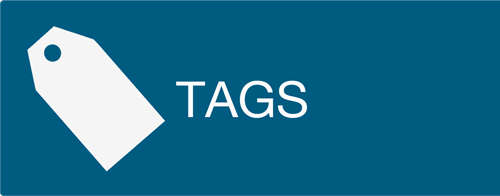Links in “Fines, Penalties, Suits, and Settlements”
- NCUA Issues Three Prohibition Orders
Prohibition orders were placed against three former credit union employees in September. Prohibition orders bar individuals from participating in the affairs of any federally insured financial institution. Two of the three pled guilty to embezzlement and received jail terms. [10/1/15]
- Home Depot Claims Financial Institutions Lack Standing to Sue
Home Depot has filed a brief to support its claim that financial institutions lack standing to sue for losses resulting from the massive data breach in 2014. Home Depot states that financial institutions are seeking injuries from possible future harm and not for previous injuries. The brief adds that the trade associations that are also parties to the class action suit lack standing because they cannot show that their entire memberships incurred harm. [9/29/15]
- Disparate Impact Claims Another Bank for $18 Million
The CFPB and DOJ hit Fifth Third Bancorp for an $18 million settlement over the dealer markup rate minority borrowers were charged compared to white borrowers for car loans. The bank says it has no way of knowing the ethnicity of borrowers whose loans are submitted by auto dealers. [9/29/15]
- Avoiding Wyndam’s “Naughty 9” Security Failures
The FTC went after Wyndham hotels for its nine security failures that resulted in three data breach incidents that exposed more than 600,00 payment cards and more than $10 million in fraudulent charges. Do any of these nine hit too close to home? [9/28/15]
- Would We Call This Credit Repair? Scammers Busted
Best Inc., a credit repair company, was allegedly used as a front to defraud individuals and businesses, stealing 300 identities and more than $5 million. Two individuals are looking at up to 75 years in prison if convicted. [9/25/15]
- How Much Was That Settlement Really For?
You hear about these huge settlements when federal agencies close cases, but in many cases the amount is misleading. The Senate has passed the Truth in Settlements Act to require more detailed disclosures to "allow the public to hold regulators accountable for the true value of these deals." [9/24/15]
- FBI Investigating Scott Credit Union for Fraud
Scott Credit Union, a $1 billion credit union in Edwardsville, IL, probably thought things couldnât get worse when it was sued by two members for millions of dollars claiming fraud and negligence on the part of the credit union. However, the FBI has announced that it is now investigating the credit union, as well. The lawsuit, which names the CEO, all of the directors, the chief executives and vice presidents as defendants, alleges that the credit union opened lines of credit in the defendantsâ names without authorization or signatures, made unauthorized withdrawals of funds from one of the memberâs checking account and used the membersâ names and credit to extend commercial lines of credit to multiple fictitious or random limited liability companies. [9/17/15]
- NCUA Accepts $129.6 Settlement Offer From Royal Bank of Scotland
The NCUA has scored another victory in its ongoing war against the Wall Street firms and financial institutions that sold faulty mortgage-backed securities to corporate credit unions. The Royal Bank of Scotland has agreed to pay $129.6 million to settle claims for losses resulting from its sale of residential mortgage-backed securities to Members United and Southwest corporate credit unions. To date, the NCUA has obtained more than $1.9 billion in legal recoveries. [9/17/15]
- Tricolor’s Two Trip Ups
Tricolor Auto Group violated the Fair Credit Reporting Act, costing them $82,777 in civil penalties. Their two biggest mistakes? Failure to have written policies and proper disputed credit investigations. [9/17/15]
- Industry Group Applauds Class-Action Certification in Target Case
ICBA applauds district court decision to grant class-action status to the case against Target, allowing banks with affected customers to seek compensation for costs due to the breach, which forced banks to reissue more than 11.5 million debit and credit cards. At the same time, the group calls for better cybersecurity laws. [9/17/15]



